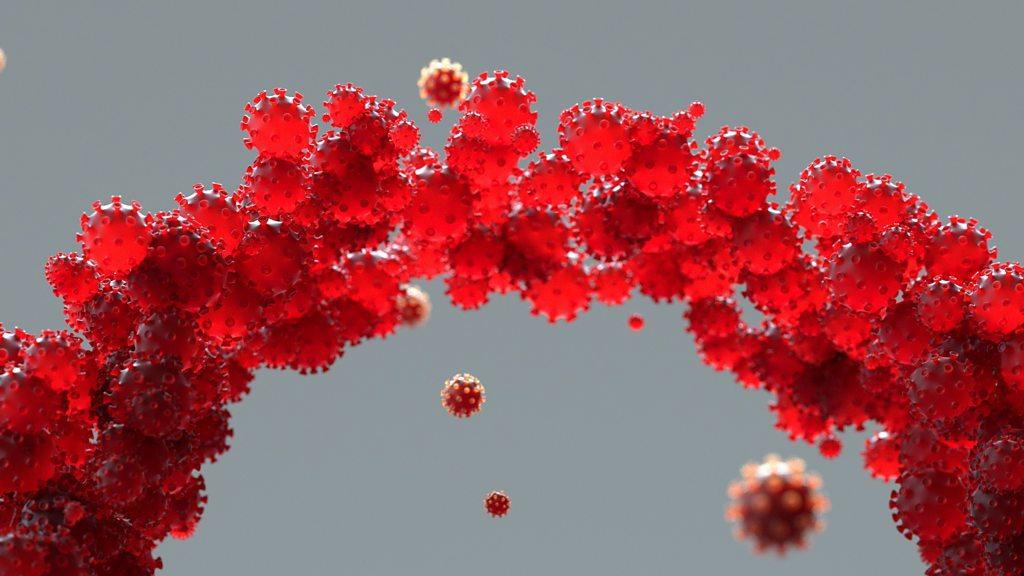Omicron: South African scientists probe link between variants and untreated HIV
- Published
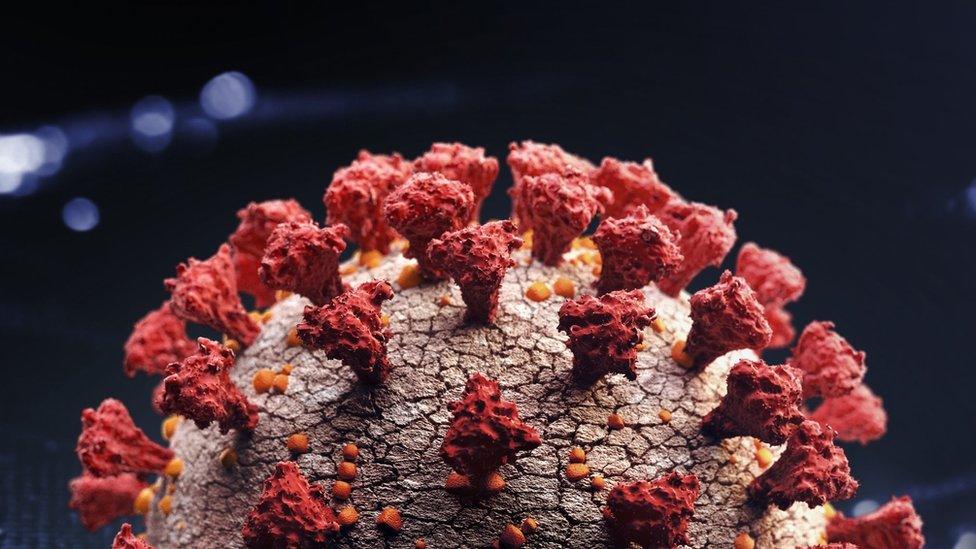
South African scientists - hailed for their discovery of Omicron - are investigating the "highly plausible hypothesis" that the emergence of new Covid-19 variants could be linked, in some cases, to mutations taking place inside infected people whose immune systems have already been weakened by other factors, including, though not limited to, untreated HIV.
Researchers have already observed that Covid-19 can linger for many months in patients who are HIV positive but who have, for varying reasons, not been taking the medicines that would enable them to lead healthy lives.
"Normally your immune system would kick a virus out fairly quickly, if fully functional," said Professor Linda-Gayle Bekker, who heads the Desmond Tutu HIV Foundation in Cape Town.
"In someone where immunity is suppressed, then we see virus persisting. And it doesn't just sit around, it replicates. And as it replicates it undergoes potential mutations. And in somebody where immunity is suppressed that virus may be able to continue for many months - mutating as it goes," she added.
But, as they push ahead with their research, the scientists are anxious to avoid further stigmatising people living with HIV, both in South Africa - home to the world's largest HIV epidemic - and globally.
"It's important to stress that people who are on anti-retroviral medication - that does restore their immunity," Professor Bekker said.
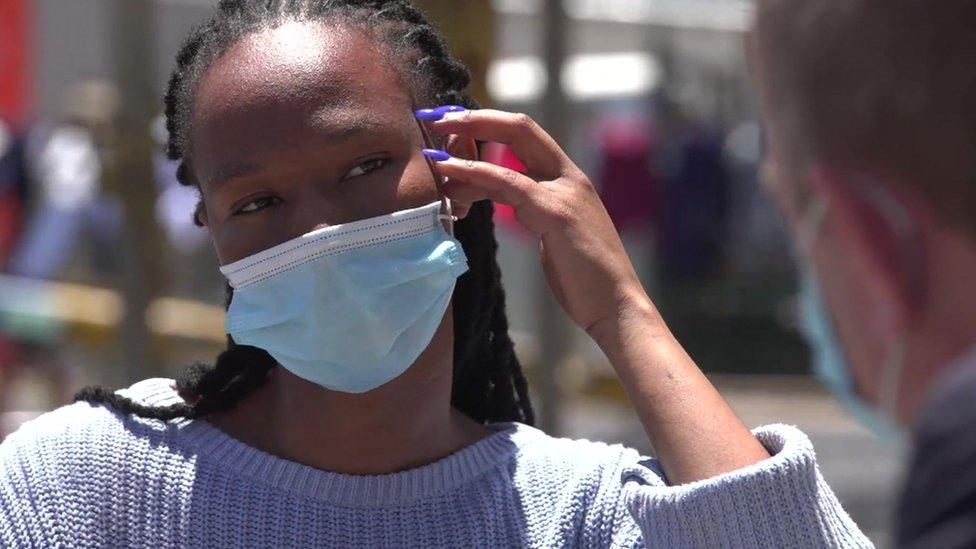
Social worker Asiphe Ntshongontshi says some stigma against HIV patients continues
Two cases of particular interest have now been detected in South African hospitals. One woman continued to test positive for Covid-19 for almost eight months, earlier this year, while the virus underwent more than 30 genetic shifts.
Professor Tulio de Oliveira, who leads the team that confirmed the discovery of Omicron, noted that "10 to 15" similar cases had been found in other parts of the world, including the UK.
"It's a very rare event. But it is a plausible explanation that individuals that are immuno-suppressed… can basically be a source of virus evolution," he said.
South African scientists have faced criticism - and even death threats on social media - after their recent discovery of the Omicron variant triggered swift, controversial and economically damaging travel bans from Western nations.
They are keen to pre-empt any suggestion that their country, or the continent, should be singled out for producing new variants.
The link between immuno-suppressed patients and new Covid variants is "a highly plausible hypothesis", said Professor Salim Karim, a leading HIV specialist and former chair of the South African government's Covid19 advisory committee.
"But it's not proven. We've seen five variants come from four different continents. So, to scapegoat Africa is simply outrageous.
"It's saying that we're not worried about immuno-compromised people from the rest of the world. We're just worried if they're black and from Africa," Professor Karim added.
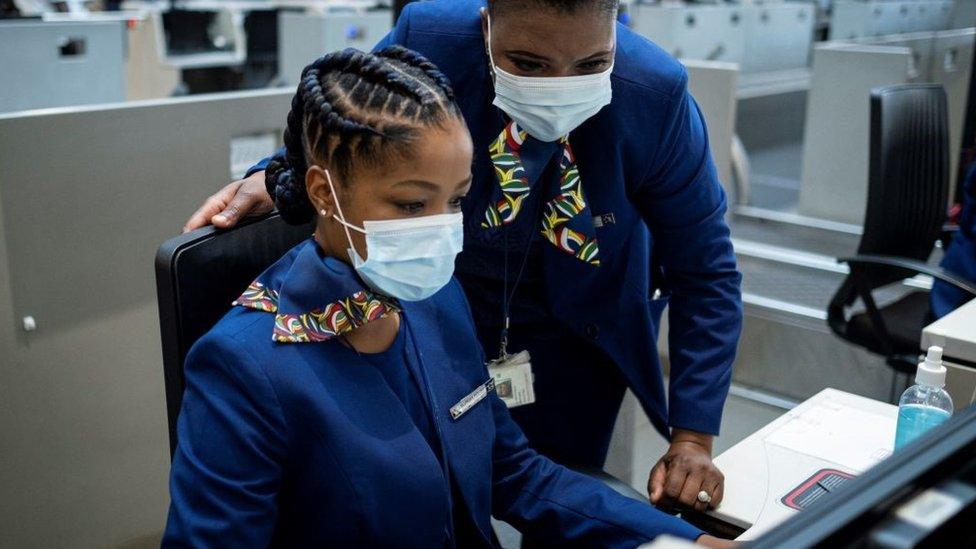
South Africa condemned travel restrictions imposed by Western governments
Scientists also note that there are many other reasons, globally, why people's immune systems might be compromised.
The emergence, for instance, of the Alpha variant has been linked to a patient receiving treatment for cancer in the UK.
"Diabetes, cancer, hunger, auto-immune diseases, chronic TB, obesity - we have a huge population of people with suppressed immunity for other reasons," said Professor Marc Mendelson, head of infectious diseases at Cape Town's Groote Schuur hospital.
In South Africa, nearly eight million people are living with HIV. But about one third of them are not currently taking medication.
In Masiphumelele, a crowded township squeezed between rocky hillsides and the Atlantic Ocean, south of Cape Town, a quarter of the adult population in the township is estimated to have HIV.
"There's lots of issues. Some [people] don't want to get tested. Some don't want to know. There's stigma around HIV," said a community liaison worker, Asiphe Ntshongontshi, 25, explaining why, despite a hugely effective health programme both here and nationwide, a significant number of people were not taking drug prescriptions.
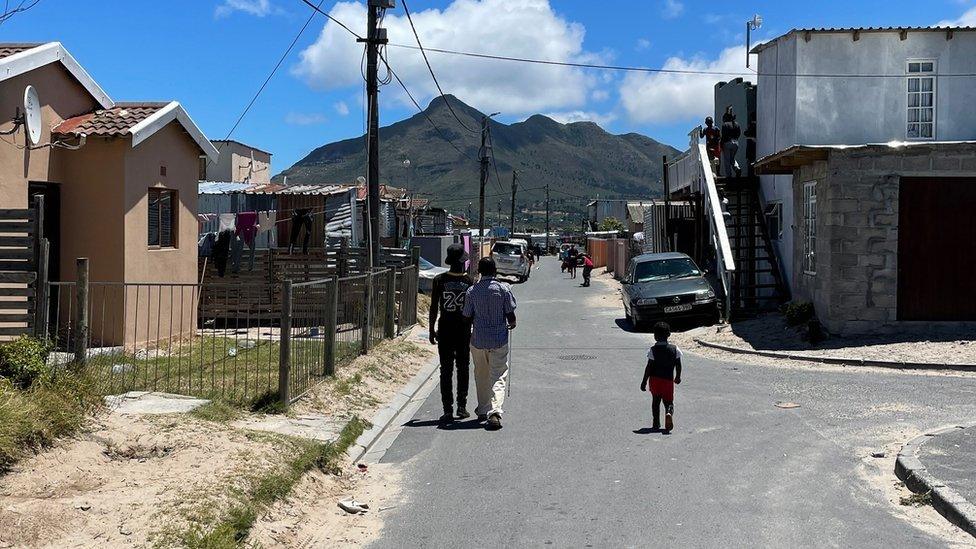
A quarter of residents in Masiphumelele township, south of Cape Town, have HIV
There is currently no evidence that any of the current Covid variants of concern have emerged in Africa, although the sudden arrival in southern Africa of a variant as transmissible as Omicron has fuelled speculation that it may be linked to someone local with a compromised immune system.
Scientists tracking the virus say they hope that concern about a potential link with HIV will spur greater global action at a time when the fight against HIV has been neglected, in some areas, because of the pandemic.
"It's a worldwide problem - this need to understand how viral infections thrive in our global community. And the best resource we have [for tackling it] at the moment is vaccination. That message has to go out loud and clear," Prof Bekker said.
While Africa still lags far behind the rest of the world in Covid vaccinations, researchers in South Africa say it is important to focus particular attention on people with weakened immune systems, who might need four or even five booster shots for the vaccines to trigger an appropriate immune response.
"If we want to slow down the risk of creating new variants, we have to take up this challenge in every country around the world. That's to try to ensure immune-compromised individuals are fully vaccinated and that they have detectable immune responses to vaccines.
"And if not, they must be given extra doses until they develop an immune response. That's our best protection from the possibility that immune-compromised people are developing variants," Professor Karim said.
Here's what we know about the Omicron variant so far and how its discovery is affecting Africa
Related topics
- Published16 December 2021
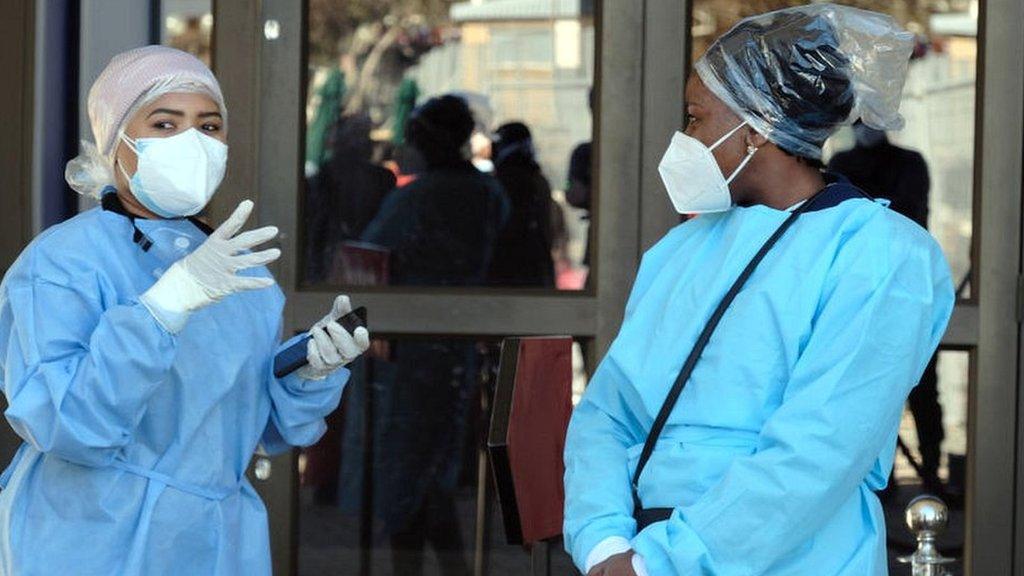
- Published14 December 2021
